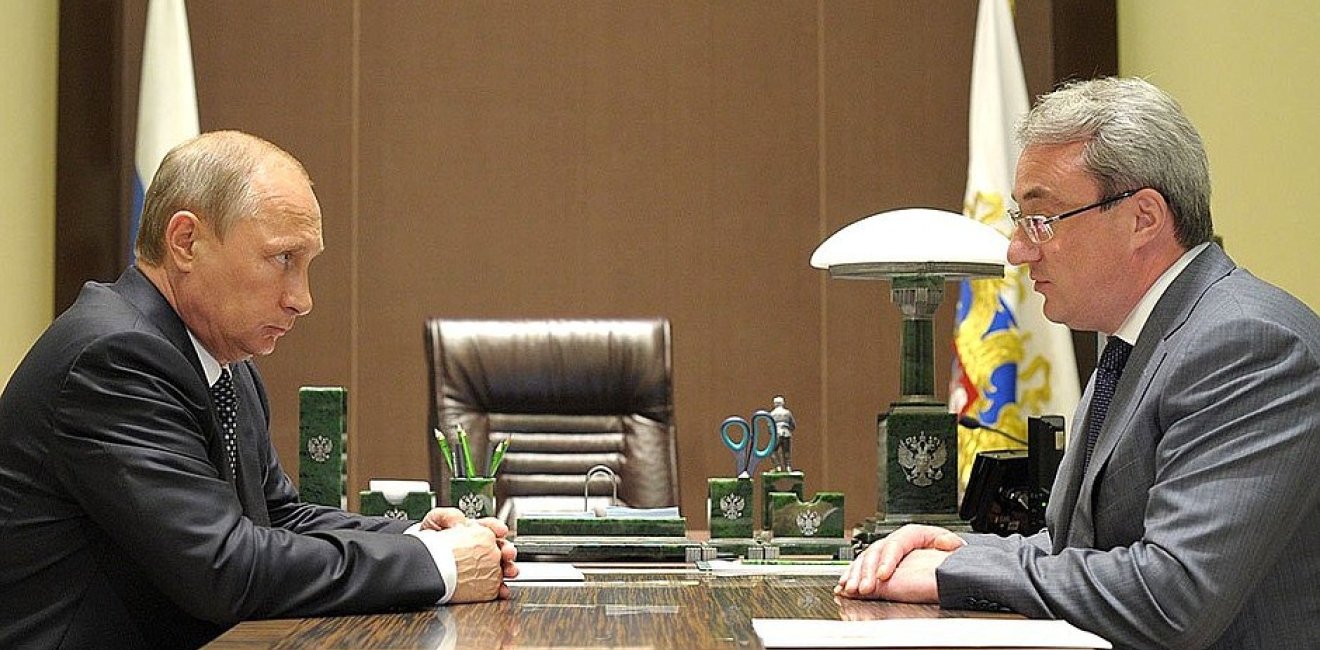
A blog of the Kennan Institute
Recently, within the space of just two weeks, Russia’s president Vladimir Putin replaced eleven regional heads. Most of the new men (they are all men) are younger and better educated than their predecessors. Most of them did not gain firsthand experience running things during the Soviet era and are not of military or special services background. They are mid-level apparatchiks, managers, economists.
These are all welcome changes, but one aspect of the sweeping cadre turnover stands out. All of the men are supposed to be elected politicians, not appointees. According to its constitution, Russia is a federal state, not a unitary republic. The string of orchestrated gubernatorial resignations and appointments casts doubt on the results of all elections in Russia.
What kind of politician can move into a region and, in a matter of months, get 63 percent of the vote in a regional election? One has to be a charismatic hero figure to pull off such a feat. Or let us take a governor who has been in office for years, routinely reelected with 60, 70, or even 80 percent of the vote. This must be a respected leader beloved by the local folks. But not a single one of the regional heads in Russia is charismatic, and very few are long-serving patriarchs.
In Putin’s Russia, elections take place not to determine the winner but to create a legal framework for an HR decision made in the Kremlin.
On September 14, 2014, Vyacheslav Gayzer won the gubernatorial elections in the Republic of Komi with 78.97 percent of the votes cast. His career came to an abrupt end a year later. He did not resign but was arrested. In September 2016, the newly recruited head of the region, Sergey Gaplikov, had no trouble carrying the snap election: 62.17 percent of Komi residents voted for him.
Nikolay Tsukanov spent his life pursuing a political career in Kaliningrad oblast. In 2015, backed by Vladimir Putin, he won the election with a stellar 71 percent of the vote. A year after this triumph Tsukanov resigned, and in September 2017, Anton Alikhanov, who had recently moved into the region but who enjoyed the support of President Putin, replaced Tsukanov, wining an incredible 81 percent vote share.
Viktor Tolokonsky pursued his career in Novosibirsk and even became governor of his region. In May 2014, Vladimir Putin appointed him acting governor of Krasnoyarsk Krai, and four months later Tolokonsky received 63.28 percent of the vote, comfortably winning the race. Three years later, in September 2017, Tolokonsky resigned, even though he had never voiced any intent to wrap up his political career early.
In all of these and many other similar cases, a very popular politician abruptly leaves his post, usually providing no reasons for the departure. The old politician’s successor normally has no trouble winning the snap election.
An outsider would struggle to explain this. Tolokonsky, a politician who won the hearts and minds of the people after just four months of campaigning in a region where he had not previously been known, would no doubt think about running for president instead of resigning early. If Tsukanov did indeed enjoy such impressive support among voters, what could push him toward an early resignation? If Gayzer was so popular in the Komi Republic, then one would expect at least several thousand ardent supporters from among his almost 80 percent support base to rally against the sudden arrest of their leader. No one showed up.
A flurry of governor arrests and the predictable electoral triumphs of their successors, even though those politicians were foreign to the regions in question, lead to a conclusion: any candidate approved by the Kremlin is guaranteed to win and is meant to do so in the first round and with at least 60 percent of the votes cast.
Could it be that Vladimir Putin is so popular that his support alone can turn an obscure apparatchik into a cult figure for millions of voters in any Russian region? The practice of gubernatorial elections demonstrates that this is not the case: governors backed by Putin do not win in free, fair, and competitive elections by relying on just the president’s endorsement. Every time, they use all available administrative tools to mobilize the electorate, while their able competitors are not allowed to run and law enforcement agencies help silence all rebellious voices among the local elites.
Hence, this is not about Vladimir Putin’s popularity, which he supposedly passes on to his protégés, and certainly not about their own political talents. The only rational explanation for all the electoral wins is that the Russian electoral system is a compliant political machine catering to Moscow’s demands. In Putin’s Russia, elections take place not to determine the winner but to create a legal framework for an HR decision made in the Kremlin.
There is no reason to assume that from a technical standpoint, the presidential election is in any way different from a regional one. The only difference is that during gubernatorial elections, administrative and law enforcement resources are mobilized to ensure a preset result in a certain region, while during the presidential election the same happens in all regions at the same time. Thus, when it comes to the popular support for Vladimir Putin that electoral commissions all over Russia will register in March 2018, one cannot presume it to be more authentic than the electoral result of any of the recently resigned governors or those who won the election in September 2017.
The winner of the presidential election can be Putin himself or any other person Putin endorses. A different scenario is simply impossible under the status quo. But the unfailing political machine renders each triumph utterly meaningless. In a practical sense, Putin’s inevitable victory is technically equivalent to the incumbent reappointing himself by his own decree. This places him on a par with any of Russia’s regional governors and their orchestrated electoral wins.
Author

Kennan Institute
After more than 50 years as a vital part of the Wilson Center legacy, the Kennan Institute has become an independent think tank. You can find the current website for the Kennan Institute at kennaninstitute.org. Please look for future announcements about partnership activities between the Wilson Center and the Kennan Institute at Wilson Center Press Room. The Kennan Institute is the premier US center for advanced research on Eurasia and the oldest and largest regional program at the Woodrow Wilson International Center for Scholars. The Kennan Institute is committed to improving American understanding of Russia, Ukraine, Central Asia, the South Caucasus, and the surrounding region through research and exchange. Read more

Explore More in The Russia File
Browse The Russia File
Chechnya as a Model of Modern Russia

Russia’s Indigenous Communities and the War in Ukraine

Gas and Power in a Changing US–Russia Relationship


